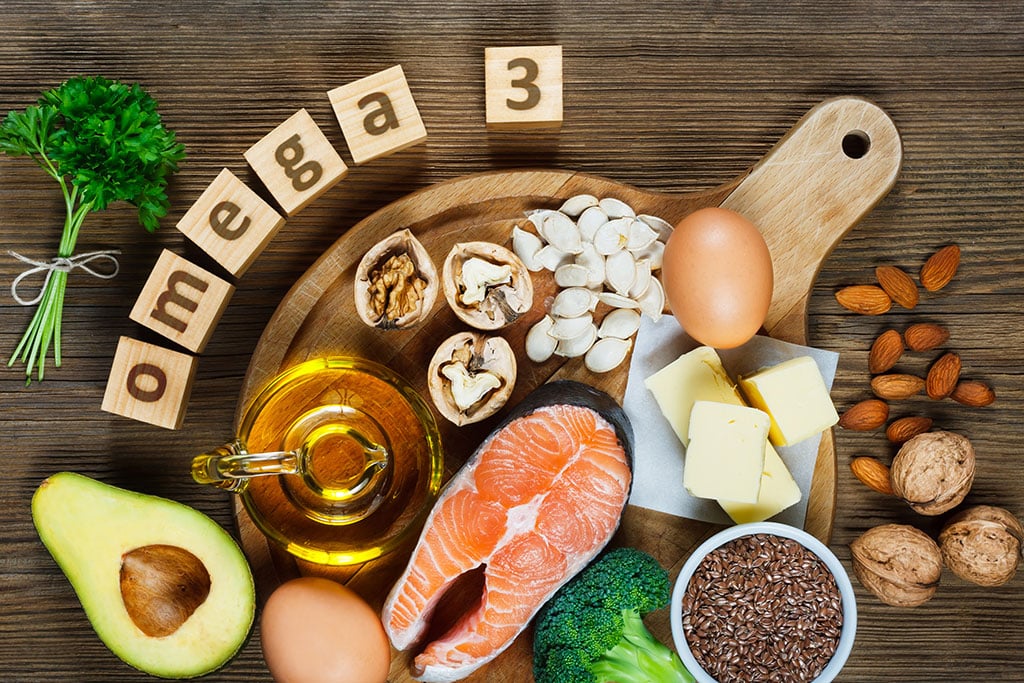Niacin has long been used to lower triglycerides and increase high-density lipoprotein (HDL) cholesterol. This “good” cholesterol helps remove low-density lipoprotein (LDL), or “bad,” cholesterol from the blood.
Niacin is used by the body to convert food into energy. Niacin also helps keep the nervous system, digestive system, and skin healthy. When used as a treatment to improve cholesterol levels or correct vitamin deficiencies, niacin is available in higher doses by prescription.
Niacin is also available as an over-the-counter supplement, but the ingredients, formulations, and effects of over-the-counter niacin can vary widely.
Do not take niacin without first discussing it with your healthcare professional because niacin can cause serious side effects when taken in high doses.
Here are some niacin-rich foods we can add to our diet, which are good for people with high cholesterol:
1. Salmon or fatty fish are rich in niacin
Rich in vitamin B3 and a quality source of protein, salmon can help boost your body's niacin levels. The omega-3 fatty acids in this superfood can also help reduce inflammation and thus lower cholesterol levels.

Foods rich in niacin help eliminate bad cholesterol.
2. Chicken breast
Chicken breast is a lean protein source that is rich in niacin and also helps control cholesterol levels. Chicken breast can be processed into many healthy dishes such as grilled, shredded... which are very good for people with high cholesterol.
3. Green beans
Green beans are a good and easily absorbed plant source of niacin. They are also high in fiber, which helps lower cholesterol levels. Adding green beans to salads, soups, or even stir-fries adds nutritional value to your dish.
Studies also show that green beans contain many antioxidants and other compounds that can reduce the risk of cancer, lower cholesterol and promote the growth of beneficial intestinal bacteria.
4. Sunflower seeds
Sunflower seeds are loaded with vitamin B3, making them a great superfood for naturally lowering high cholesterol. You can add these amazing seeds to smoothies or smoothies and salads (for extra crunch), or you can snack on them.
5. Avocado
Avocado is an easy-to-eat fruit with a delicious flavor and rich in vitamin B3. Half an avocado provides up to 30% of the daily requirement of vitamin B3.
Avocados are rich in fiber, healthy fats, and many vitamins and minerals. In fact, one avocado contains twice as much potassium as a banana. Avocados are also an excellent source of monounsaturated fats, which can help reduce the risk of heart disease when consumed regularly. The monounsaturated fats found in avocados help lower LDL (bad) cholesterol levels while increasing HDL (good) cholesterol levels.
Avocado can be used in smoothies, eaten directly or used as a side dish with salads and creates the most nutritious and fiber-rich intestinal snacks.
6. Sweet potatoes
Sweet potatoes are rich in important vitamins and minerals, including niacin, making them a nutritional powerhouse. The antioxidants and fiber in sweet potatoes can help lower LDL cholesterol levels and promote heart health. Sweet potatoes are a healthy side dish or baked.
7. Mushrooms
Mushrooms are a low-calorie, nutrient-dense food source that is high in vitamin B3. Mushrooms are high in antioxidants and fiber, which can reduce cholesterol levels and inflammation.
Adding mushrooms to omelets, pasta dishes or stir-fries can make for an effective cholesterol-lowering remedy.
High cholesterol, especially low-density lipoprotein (LDL) cholesterol, has become a growing health concern. Often labelled as ‘bad cholesterol’, LDL cholesterol sets the stage for health complications such as heart disease and stroke by causing plaque buildup in the arteries, restricting blood flow.
This is a lifestyle disease and therefore must be controlled with proper diet and exercise. The foods mentioned above are great for lowering high cholesterol naturally at home. However, consistency and moderation are the keys to success.
You should consult a nutritionist or physician before making any changes to your daily dietary routine.
Source











![[Video] More than 100 universities announce tuition fees for the 2025–2026 academic year](https://vphoto.vietnam.vn/thumb/1200x675/vietnam/resource/IMAGE/2025/7/18/7eacdc721552429494cf919b3a65b42e)


















































































![[Infographic] In 2025, 47 products will achieve national OCOP](https://vphoto.vietnam.vn/thumb/402x226/vietnam/resource/IMAGE/2025/7/16/5d672398b0744db3ab920e05db8e5b7d)





Comment (0)